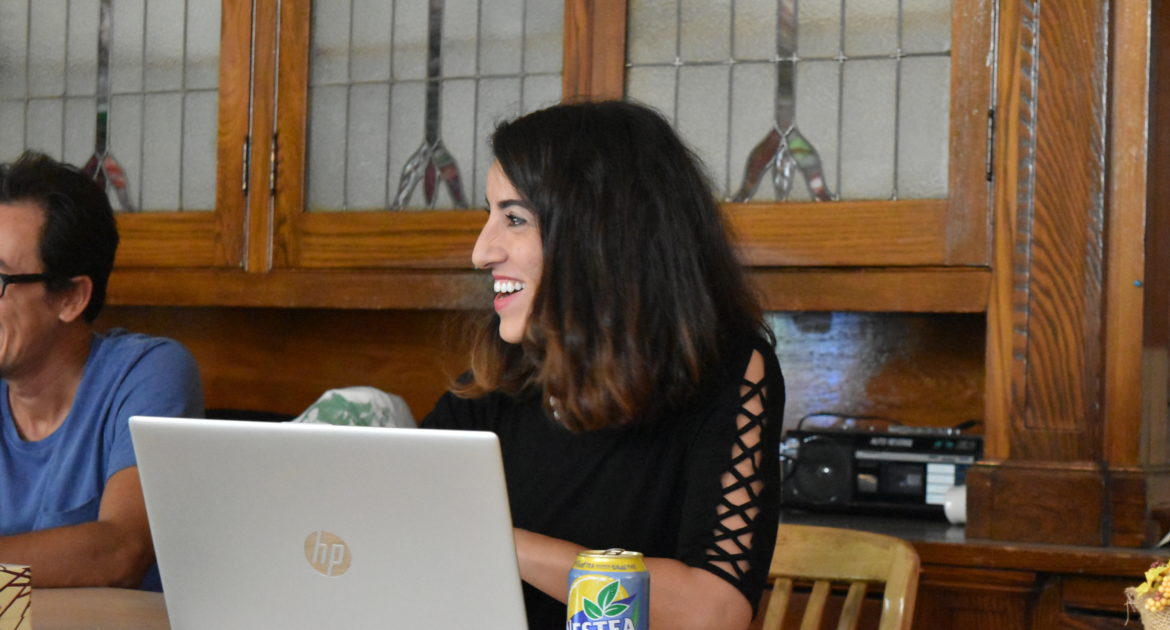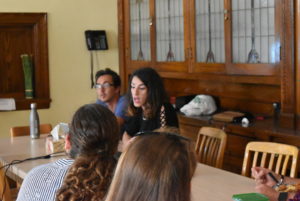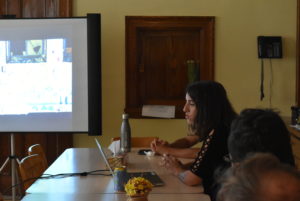
Meryem Mouna was deployed to Morocco as a voluntary legal advisor as part of the “Protection of Children, Women and Other Vulnerable Communities (PRODEF)” project, implemented by the International Bureau for Children’s Rights and Lawyers Without Borders Canada (LWBC), with the financial support of the Government of Canada through Global Affairs Canada. Meryem was hosted for one year by the Bayti association, partner of the IBCR in Morocco, which works for the protection and psycho-social reintegration of children in difficult situations, and for the defense of their rights.
Just returned to Montreal after the end of her mandate, Meryem took the time to come and talk about her experience as a volunteer cooperant with the IBCR staff on Monday, July 29.
 She began her presentation with an overview of the situation of children’s rights in Morocco, where several problems persist: early marriage and pregnancy, tolerance towards child labour, child begging, etc. Meryem then addressed the subject of the country’s Child Protection Centres, which take in children in various situations (in conflict with the law, orphans, etc.), and in which living conditions are unfortunately not always optimal. She stressed that decisions were not always taken in the best interests of the child, even though this is one of the most fundamental rights of the child.
She began her presentation with an overview of the situation of children’s rights in Morocco, where several problems persist: early marriage and pregnancy, tolerance towards child labour, child begging, etc. Meryem then addressed the subject of the country’s Child Protection Centres, which take in children in various situations (in conflict with the law, orphans, etc.), and in which living conditions are unfortunately not always optimal. She stressed that decisions were not always taken in the best interests of the child, even though this is one of the most fundamental rights of the child.
During her mandate, Meryem had the opportunity to prepare workshops to raise awareness on children’s rights, and to facilitate a workshop in French for unaccompanied migrant minors. She also highlighted key moments in her mandate, including Bayti’s participation in the Continental Conference on Access to Justice for Children in Africa. It was with emotion that the cooperant told the story of a mother’s reunion with her daughter thanks to the Bayti association and their installation in Belgium to start a new life.
Part of Meryem’s mandate was devoted to supporting Bayti as part of the Collective for Placement in Host Families, of which the association is a member, which aims to promote the integration of children into foster families in Morocco (click here to learn more).
On a more personal level, Meryem spoke about international cooperation and provided advice to future development workers. She stressed the importance of integration, which she considered to be the most crucial step in the mandate. She suggests observing the lifestyle, customs and culture during the first few weeks of the mission. She also said that it is important to be attentive to the needs of partners and not hesitate to go a little outside the scope of the mandate. Finally, she advises to attend events and conferences to create a local network.
 The cooperant ended her presentation by highlighting the challenges related to children’s rights in Morocco. According to her, efforts to improve the situation must focus on the recognition of paternity for children out of wedlock, the adoption of a law governing foster families and the complete prohibition of marriages involving minors.
The cooperant ended her presentation by highlighting the challenges related to children’s rights in Morocco. According to her, efforts to improve the situation must focus on the recognition of paternity for children out of wedlock, the adoption of a law governing foster families and the complete prohibition of marriages involving minors.





